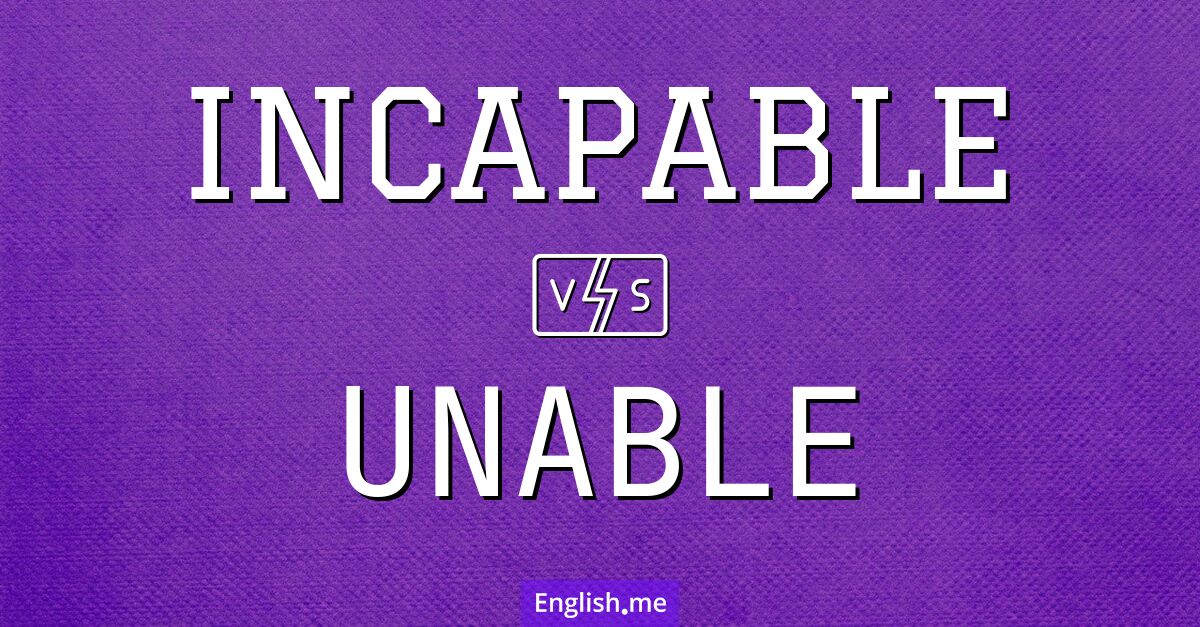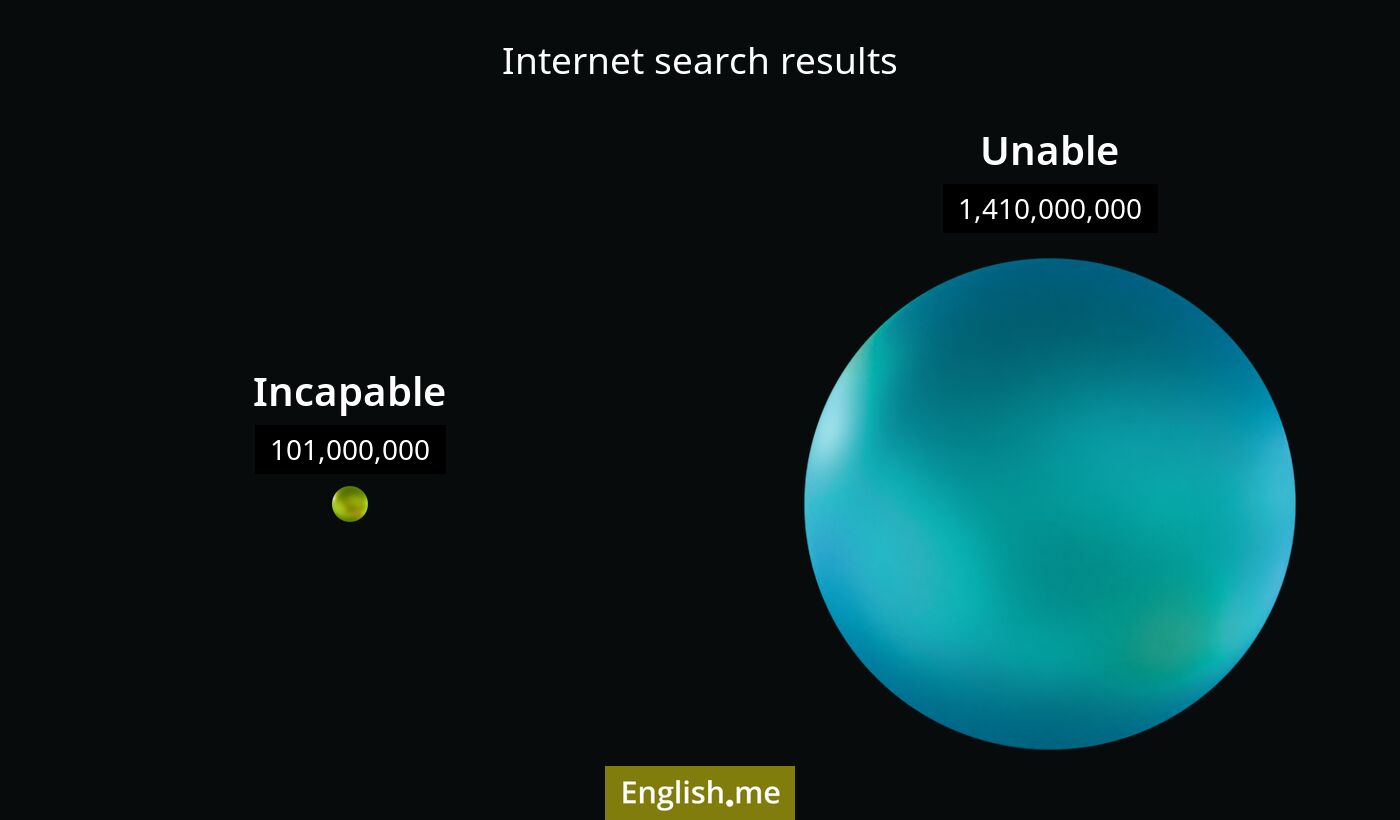"Incapable" vs "unable": what's the difference?
Reviewed and edited by  Anwar Kareem 07/01/2025, 03:19
Anwar Kareem 07/01/2025, 03:19
English.me team member

 What is similar?
What is similar?
Both "incapable" and "unable" describe a lack of ability or capacity to do something. They are adjectives used to indicate that someone or something cannot perform a specific action or function.
 What is different?
What is different?
"Incapable" often implies an inherent or intrinsic lack of ability, suggesting a more permanent or characteristic inability. "Unable" is typically used to describe a temporary or situational lack of ability due to specific circumstances.
 Which one is more common?
Which one is more common?

 Examples of usage
Examples of usage
Incapable- She is incapable of lying.
- The device is incapable of processing large amounts of data.
- He felt incapable of making a decision at that moment.
- He was unable to attend the meeting.
- They are unable to reach an agreement.
- She is unable to lift heavy objects due to her injury.

 English
English español
español française
française italiano
italiano deutsche
deutsche 日本語
日本語 polski
polski česky
česky svenska
svenska Türkçe
Türkçe Nederlands
Nederlands